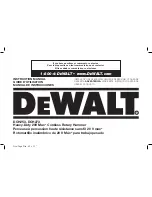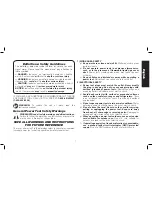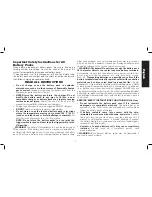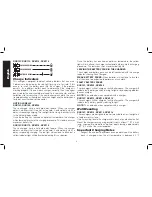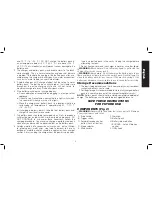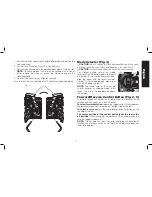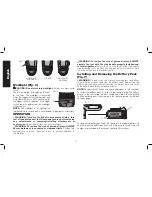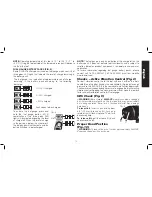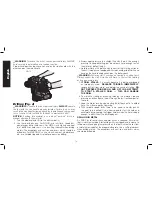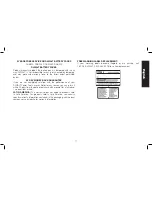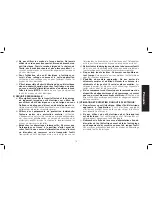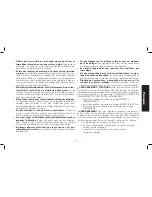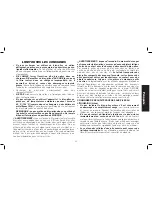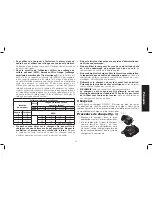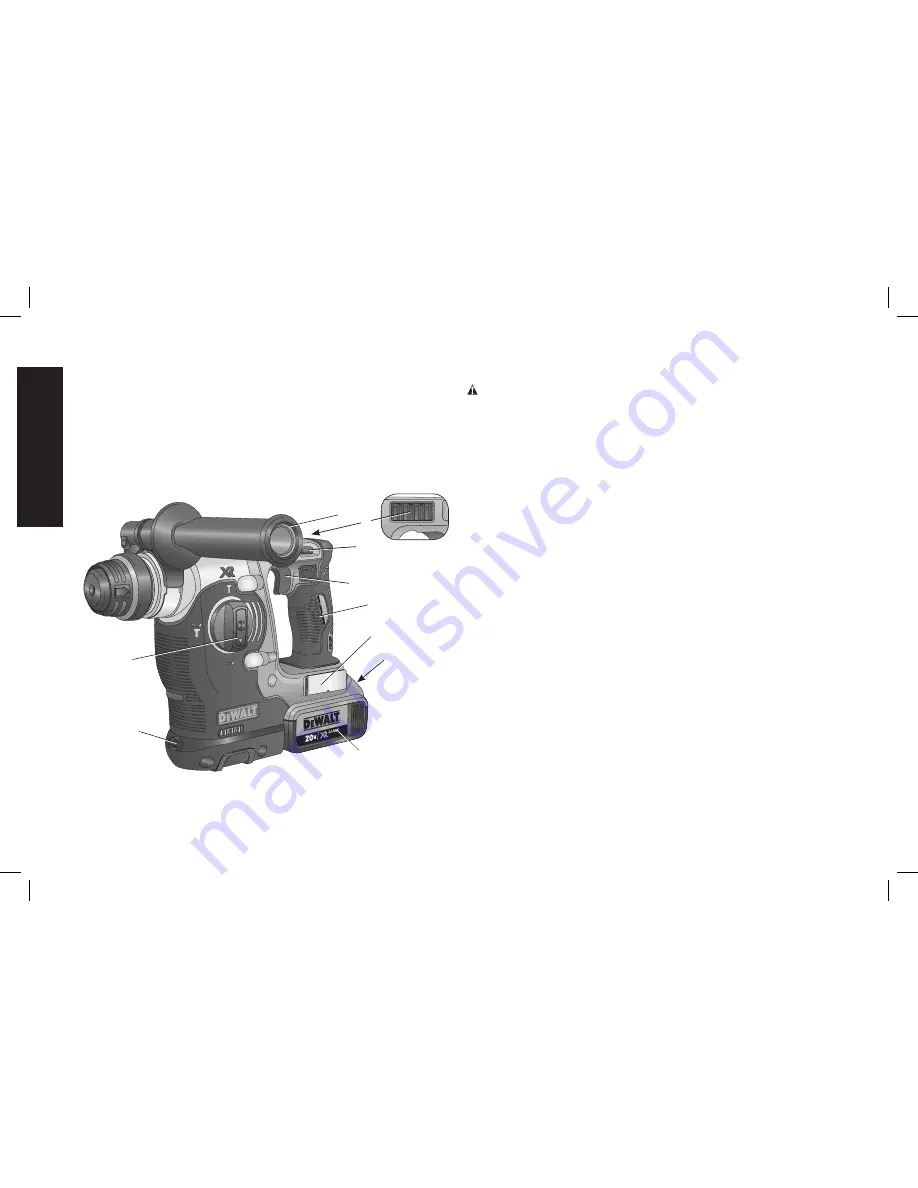
10
English
Side Handle (Fig. 2)
WARNING:
To reduce the risk of personal injury,
ALWAYS
operate
the tool with the side handle (A) properly installed. Failure to do so may
result in the side handle slipping during tool operation and subsequent
loss of control. Hold tool with both hands to maximize control.
The side handle (A) clamps to the front barrel (collar) and may be
rotated 360° to permit right-or left-hand use. The side handle can
be tightened by rotating the black plastic portion of the side handle
clockwise. The side handle must be tightened sufficiently to resist the
twisting action of the tool if the accessory binds or stalls. Be sure to
grip the side handle at the far end to control the tool during a stall. To
loosen side handle, rotate counterclockwise.
Trigger Switch (Fig. 2)
To turn the tool on, squeeze the trigger switch (B). To turn the tool
off, release the trigger switch. Your tool is equipped with a brake. The
chuck will stop as soon as the trigger switch is fully released.
VARIABLE SPEED TRIGGER SWITCH
The variable speed trigger switch enables you to select the best speed
for a particular application. The farther you squeeze the trigger switch,
the faster the tool will operate. For maximum tool life, use variable
speed only for starting holes or fasteners.
NOTE:
Continuous use in variable speed range is not recommended.
It may damage the trigger switch and should be avoided.
Utility Hook (Fig. 3)
A utility hook is fitted to the left side of the tool. To extend the utility
hook pull it out from the side of the tool. To store the utility hook push
it back flush with the side of the tool. The utility hook (J) and can be
positioned to the left or right of the tool to accommodate left or right-
handed users.
INTENDED USE
These heavy-duty cordless rotary hammers are designed for
professional concrete drilling and chiseling applications.
DO NOT
use under wet conditions or in presence of flammable liquids
or gases.
These heavy-duty cordless rotary hammers are professional power
tools.
DO NOT
let children come into contact with the tool. Supervision
is required when inexperienced operators use this tool.
FIG. 2
B
D
C
E
A
J
F
G
H
I
Summary of Contents for DCH253
Page 2: ......

